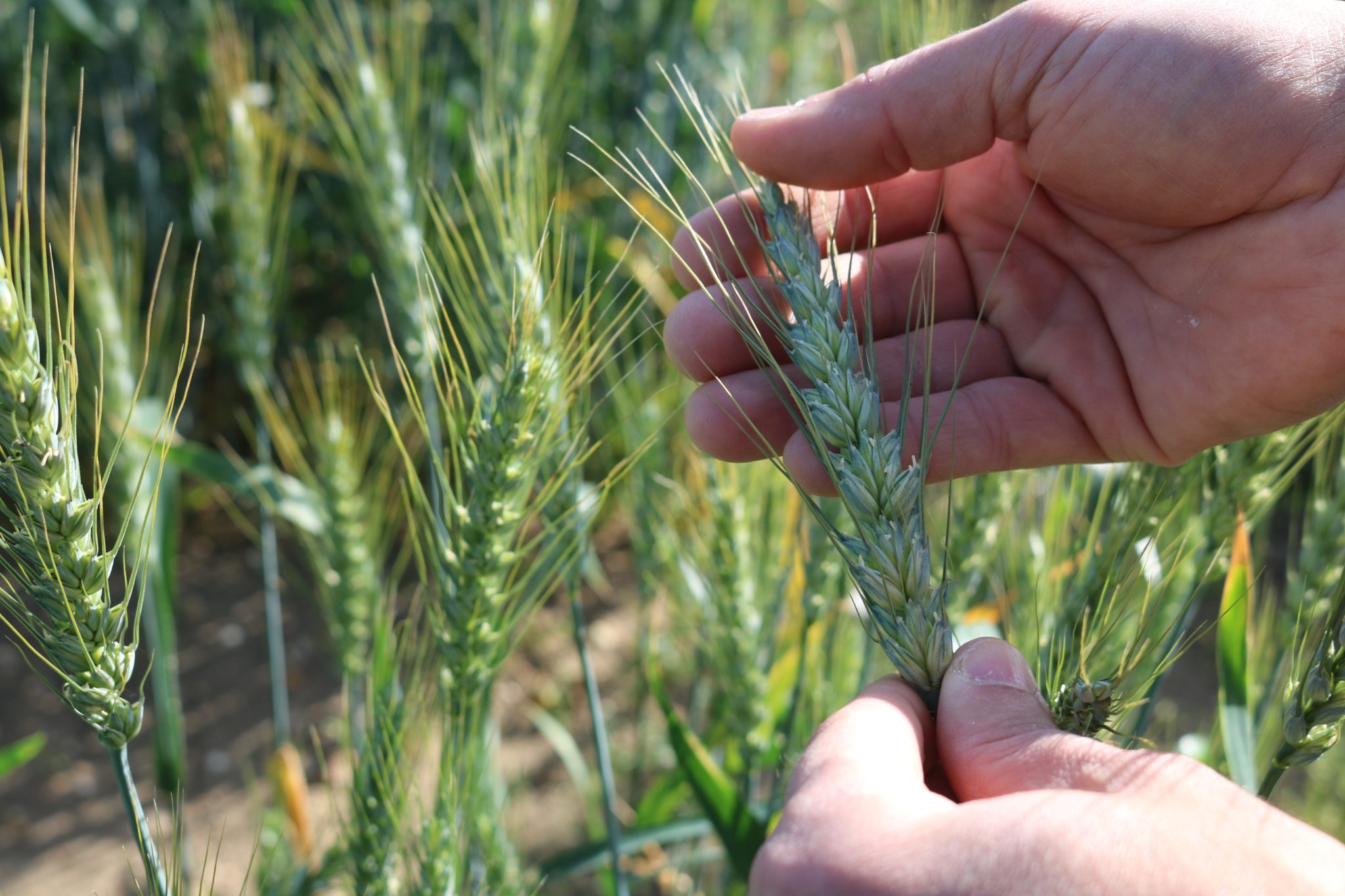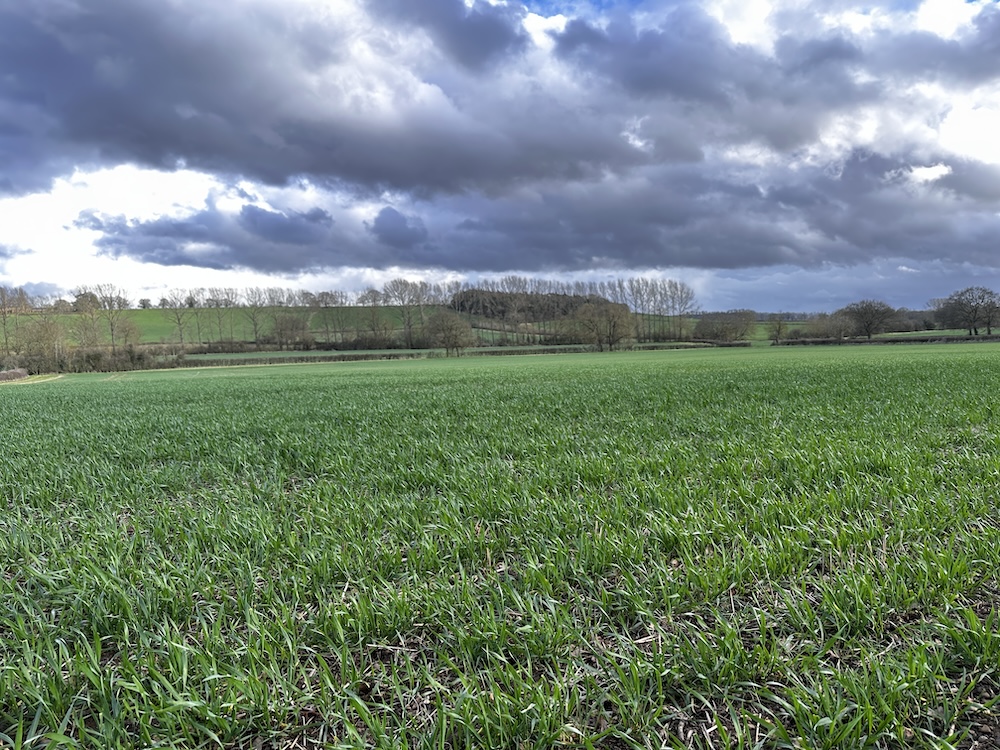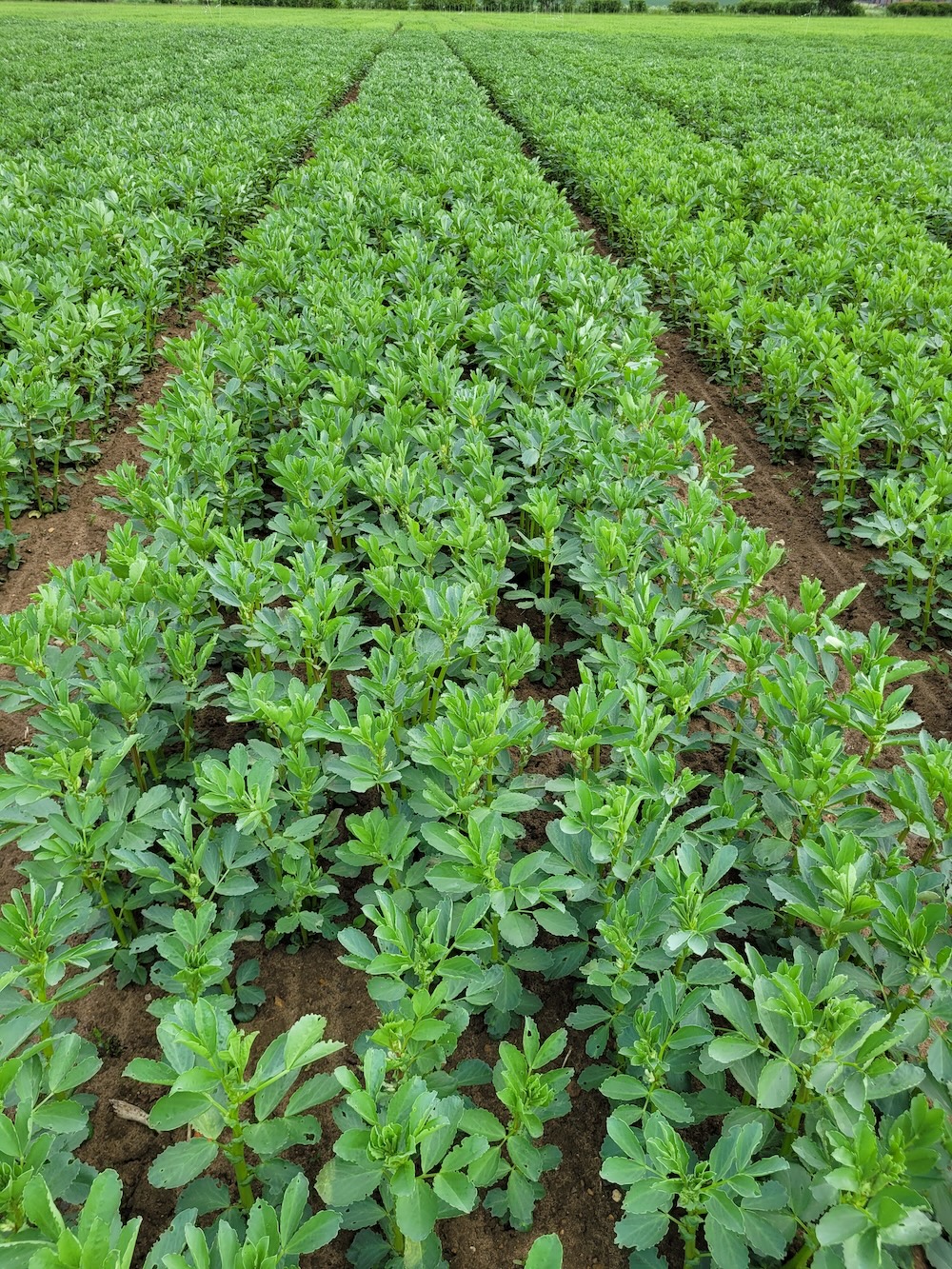
A project bringing trials of precision-bred cereal crops onto commercial farms for the first time in Europe is now underway.
Trial plots of a precision-bred wheat variety, which could lead to a ‘greener’ farming system have now been harvested, marking the start of a groundbreaking new project.
PROBITY – A Platform to Rate Organisms Bred for Improved Traits and Yield – brings farmers, scientists and food manufacturers together to trial the production and processing of precision-bred crops to accelerate understanding of their value to sustainable food and farming.
Led by the British On-Farm Innovation Network (BOFIN), it is a three-year £2.2m multi-partner project, funded by Defra’s Farming Innovation Programme, which is delivered by Innovate UK.
Farmers are encouraged to get involved with the project by joining the Sequence Circle at probityproject.co.uk a new community set up to lead discussion on precision-bred crops and help steer the project.
Precision-bred crops can be created through gene editing, a widely used technology that enables scientists to make changes to plant DNA, like those that occur naturally, but introduced in a precise, targeted manner. Gene editing speeds up the process of breeding more productive, nutritional and sustainable crop varieties.
The Genetic Technology (Precision Breeding) Act 2023 allowed for the release and marketing of certain gene-edited plants. This currently makes England the only country in Europe where this novel material can be grown in farmers’ fields.
The seed harvested from plots at the John Innes Centre near Norwich will be multiplied up during 2025, to enable farmers in England to grow trials of the crop the following year.
Two further cereal varieties are being grown in glasshouses at Rothamsted Research, and once harvested this autumn, will also be multiplied up to be trialled on farms.
The three varieties will be grown on commercial farms and subjected to testing and scrutiny by farmers, scientists and food manufacturers to establish their potential.
The three cereal varieties in the project are:
- A wheat with superior baking, toasting and processing properties
- A barley making high lipid, high energy forage aimed at lowering livestock methane emissions
- A wheat with a bigger bolder grain size promising a step change in productivity.
Tom Allen-Stevens, Oxfordshire farmer and founder of BOFIN said: “This is an incredibly important project for farming and food production in this country.
“We need to produce more, nutritious food with fewer resources and with less impact on the environment. Scientists have been developing new crop varieties that could help us rise to that challenge. This project will bring those varieties from the laboratory to farmers’ fields where we can fully assess their potential, explore barriers to their adoption and pave the way for future innovation.”
Professor Nigel Halford, technical lead of PROBITY and scientist at Rothamsted Research who developed the healthier wheat line said: “It’s tremendously important that we grow these varieties on farms so that farmers and food manufacturers can see the benefits and want to use them, and that consumers can be reassured that they’re no different in practical terms from other varieties of wheat.”
The high lipid barley variety was developed by Professor Peter Eastmond at Rothamsted Research. He said: “This project is hugely significant as it’s the first time in my career that it’s been possible to grow these varieties on real farms. The work leading to this point has all been funded by the taxpayer so it is extremely important to take it to the next stage and see if this trait could stand up from a commercial point of view.”
Professor Cristobal Uauy, scientist at John Innes Centre who developed the bigger bolder wheat variety said: “This project provides a unique opportunity to work with farmers and test precision-bred crops directly in their fields. We are extremely excited as this brings us one step closer to delivering wheat varieties with traits which will help us towards regenerative agriculture, a greener farming system and enhanced nutrition and quality.”
For more information on the project visit probityproject.co.uk.
ENDS
Notes to editors
- PROBITY will set up a new farmer-led platform to multiply up Precision Bred Organisms (PBOs) in farmers’ fields and provide enough material for batch processing.
- The Genetic Technology (Precision Breeding) Act 2023 has allowed for the release and marketing of certain gene-edited plants. This makes England currently the only country in Europe where this novel material can be grown in farmers’ fields.
- The platform will put in place the infrastructure and process needed to take a PBO from less than 1kg of seed to a 100t batch in just three years. The crops will be tested by farmers in their fields alongside unedited controls and their farm standard varieties. Their progress in the field will be closely monitored, processed material intensely scrutinised and findings will be openly shared. The aim is to explore how farmers feel about growing PBOs and how consumers feel about having food made with them.
- The Sequence Circle is the community of farmers established to drive discussion and steer the project. Part of this is a moderated Knowledge Cluster (discussion forum with resource hub) that will launch in Autumn 2024 and build to at least 300 farmers, scientists, plant-breeding representatives and other industry innovators, who lead the conversation on precision-bred crops and trade knowledge on how to progress the technology.
- At the end of the project there will be a farmer-led platform available as a service to help accelerate adoption of new genetic technologies in a safe and trusted environment.
- BOFIN (British On-Farm Innovation Network) leads the consortium which includes Rothamsted Research, John Innes Centre, University of Nottingham, Aberystwyth University, Dyson Farming, UK Agri-Tech Centre, Newby Partnerships Ltd, Elsoms Seeds, Cereal Partners Worldwide, Nestec York Ltd and First Milk.
- PROBITY is a three-year, £2.2m farmer-led project, funded by Defra’s Farming Innovation Programme Small R&D Partnership Round 3). Defra is working in partnership with Innovate UK, the UK’s Innovation agency, who are delivering the programme. Project number: 10097973.
- All press enquiries for PROBITY should be directed to Clemmie Gleeson clemmie@bofin.org.uk 07485 762841
For other on-farm trials press releases click here.




